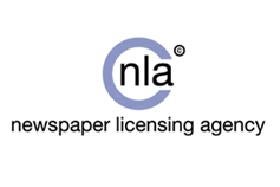
The Newspaper Licensing Agency has announced it is to begin regulating its customers’ use of hyperlinks to newspaper articles on the web.
The agency, which controls reproduction of newspaper clippings by news monitoring services and public relations agencies, will introduce an extension to its licences later this year.
According to a circular sent to members of the Chartered Institute of Public Relations, and seen by Press Gazette, the NLA will be introducing a new form of licence from 1 September to regulate “web aggregator services (such as Meltwater) that forward links to newspaper websites and for press cuttings agencies undertaking this type of activity”.
From January 2010, the licence charges will also apply to PR practitioners and “other organisations forwarding links to newspaper websites as part of their commercial activity”.
The CIPR states that this will apply to “almost all newspaper websites excluding News International titles and the Financial Times“.
NLA managing director David Pugh today confirmed the introduction of the new licence extension governing weblinks.
He told Press Gazette that the licence was intended to apply only to organisations circulating hyperlinks to newspaper articles commercially as part of a business model.
There is no attempt to regulate use of hyperlinks where that is not as part of a chargeable service, such as by private individuals or as the results of queries by internet search engines such as Google News.
He said licensing will also apply to recipients of paid media monitoring services, as is the case with existing NLA licences.
This move could prove controversial, as the NLA introduces the concept that the publisher of a newspaper article online has the right to control the use of a hyperlink to that article in certain circumstances.
The new licence is seen by some PR practitioners as an attempt to offset a loss of revenue as newspaper monitoring moves away from electronic cuttings and towards the use of material freely available on public websites.
At a time when the business models of newspapers are under threat, it is also an attempt to introduce a new revenue stream.
The NLA licence scheme aims to control the distribution of photocopies or electronic scans of print articles to protect the copyright entitlement of member publications.
There are different levels of the licence, according to the number of employees within an organisation, the number of users, the range of member publications used, and the number of newspaper cuttings circulated.
Fees charged by the NLA range from the low hundreds of pounds for small companies to more than £50,000 for the biggest companies.
The agency was established in 1996 by eight UK national newspaper publishers.
It represents about 1,400 national and regional publications and raises just under £20m each year for its members from around 8,000 customers.
Email pged@pressgazette.co.uk to point out mistakes, provide story tips or send in a letter for publication on our "Letters Page" blog
